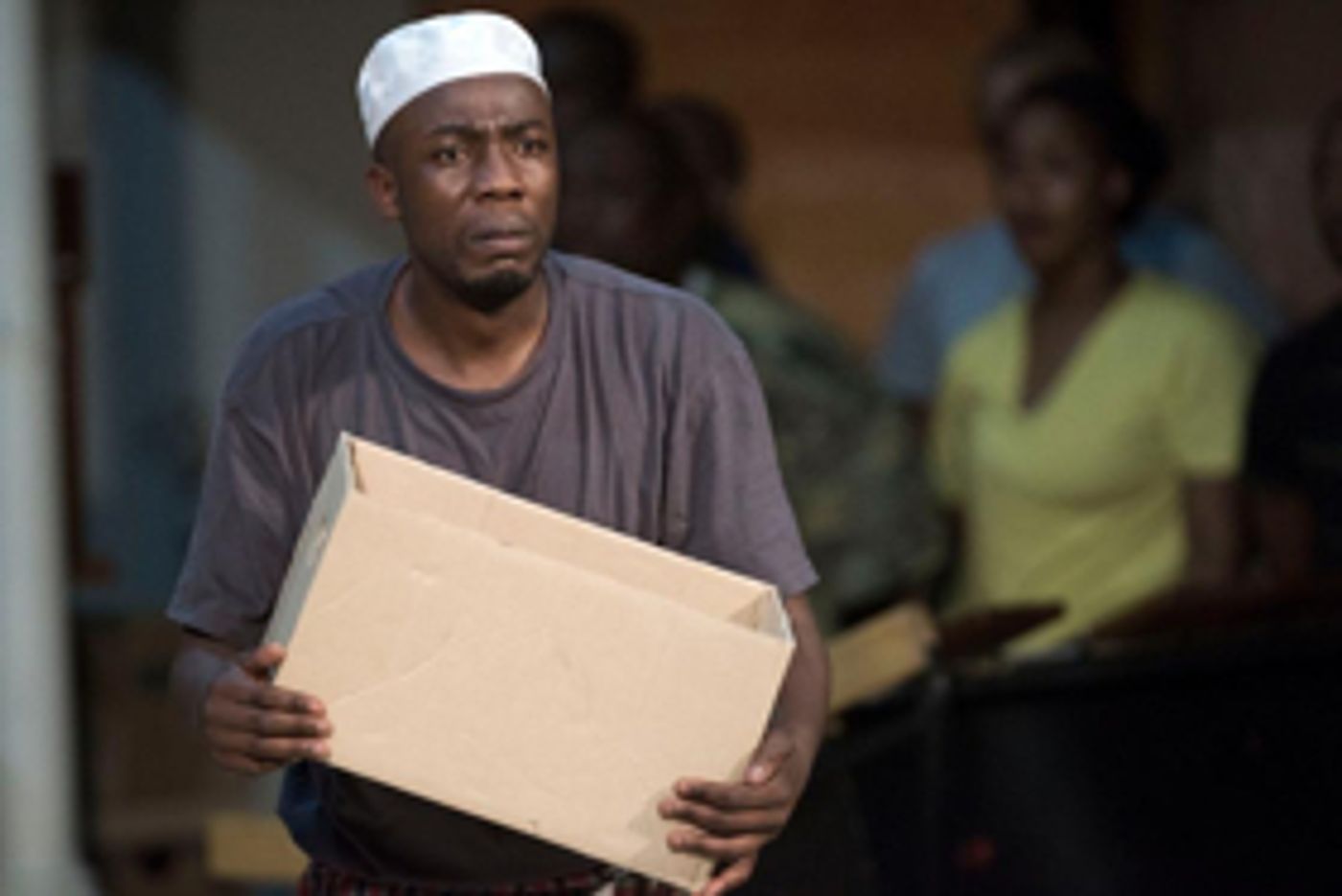Review: A MAN OF GOOD HOPE, Linbury Theatre, Royal Opera House

![]() Asad is eight years old. Asad is living in Mogadishu. Asad is alone.
Asad is eight years old. Asad is living in Mogadishu. Asad is alone.
It's a Dickensian set up, but this is within our lifetimes (the story starts in 1991) and it's within our gift to do something about it too. Asad does not wash up on a Mediterranean beach, but his story is no less harrowing, one that ultimately, he cannot bring himself to read - his past is now ours.
There a nagging edge of political uneasiness in the fact that Asad's life is laid bare by Jonny Steinberg, a white South African, who wrote the book on which this play with music is based, and that the work is directed by Yorkshire-born Mark Durnford-May. There's also a thread of "White Saviour" syndrome running through the narrative too - the USA seen by Somalis as the Puerto Ricans saw it in West Side Story 60 years ago.
But never mind all that - this is political theatre as only Isango Ensemble can make it. The marimbas blend their tones with the singers, especially in choral passages - an elemental sound that vibrates through millennia and across continents. Feet stamp, sticks bang, rhythms found with what comes to hand. I'd seen the Ensemble before (La Boheme Abanxaxhi in 2012) so I knew what was coming - not that it makes any difference to the unique connection such music makes with the soul.
"Ensemble" is no idle suffix to Isango's name. Performers leap from marimba to marimba, act in comic roles that would not be out of place in Gilbert and Sullivan, then break your heart with tragic arias that reminded me of Puccini. All without ever losing their essential Africanness - World Music indeed.
Mandisi Dyantyis is ringmaster again, sharing music direction duties with Paulina Malefane, whose exquisite soprano voice pierces boundaries, cultural and political. If there's one standout amongst this multi-talented cast, it's Siphosethu Hintsho, a young actor whose immense promise is already being realised, his emotional connection with the audience as young Asad forged in singing, movement and tremendously sympathetic acting.
If the specifics of Asad's journey are familiar - the bright kid brought down by corruption and thuggery, the promised land of South Africa turning out to be just another venue for violence - the underlying message bears repeating.
Men with guns and the ruthlessness to use them destroy the lives of women and children. Much of the causes of such violence date back to colonial times, when Europeans drew lines on maps without regard to the network of African clans and kingdoms that had held an often fragile, often broken peace through the 30+ generations that Asad's family can trace. Europeans (and their diaspora) created the states that are glibly described as "failed" and, though the solution can only come from within them, they need our help, individually and collectively, not our enmity fuelled by ignorance.
At Easter, the colonial governor Pontius Pilate, washed his hands of his obligations - 2000 years on, we need to do something more. Isango Ensemble's political theatre doesn't provide ready answers, but its art spans the humanity we all share - and that's the best place to start a journey longer and more perilous than even Asad's.
A Man Of Good Hope is at the Linbury Theatre, Royal Opera House, until 4 May.
Reader Reviews
Videos

